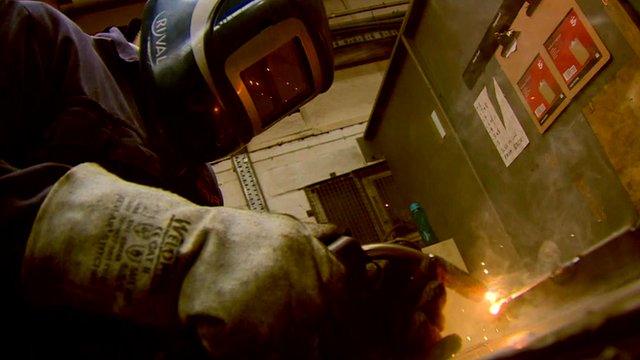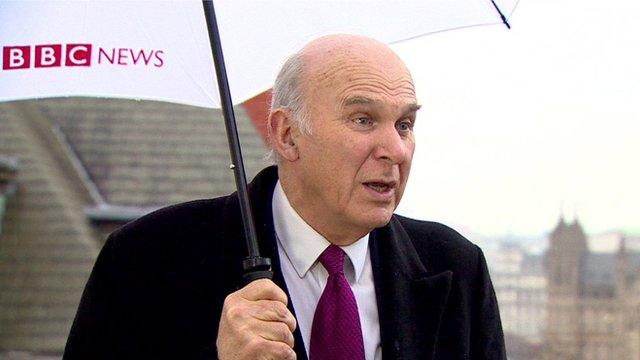Apprentices get 'exploitative wages'
- Published

Apprenticeships in construction, manufacturing and engineering are popular
Apprentices are paid "exploitative" rates and must receive higher wages if the programme is to solve youth unemployment, a report says.
The National Union of Students says apprentices cannot afford to travel to their place of work or study, or take time off sick.
England's teenage apprentices are entitled to £2.73 an hour - £95 for a 35-hour week.
The government is considering raising apprentices' pay by £1 an hour.
All three main parties have pledged their support for the apprenticeships programme and the Forget Me Not report, highlights how central investment has grown in recent years.
Employers are also being incentivised by being exempted from National Insurance payments for each apprentice they take on, says the report.
It poses the question: "Whilst employers are encouraged to employ more apprentices and the government is ploughing money in to funding them, what is the situation for the individual apprentice?"
'Two jobs'
It continues: "Apprenticeships are often framed as a chance to 'earn whilst you learn'. They supposedly offer a chance to gain a skill and a qualification whilst working in a 'real 'job with a wage. Yet for many apprentices their low wages quickly disappear on travel, rent and food."
The NUS claims the apprentice minimum wage of £2.73 an hour for 16 to 18-year-olds, and 19-year-olds in their first year, is "exploitative" and is not enough to cover basic living expenses.
It highlights how a government report from last year suggested 42% of hairdressing apprentices are being paid under the legal minimum.
It says many apprenticeships are not financially viable, leading many to take another jobs at the same time.
One contributor said: "I also work part time at a supermarket 12 hours a week on top of my 42-hour apprenticeship workload.
"This enables me no time to complete course work. But it is essential I keep both jobs to ensure I can pay my bills at the end of the month."
The NUS calls for all apprentices to be entitled to at least the national minimum wage.
The report also highlights how family budgets are affected by a youngster taking up an apprenticeship.
This is because although child benefit stops when a child reaches 16, if they remain in "approved" education or training, families still qualify.
However, apprenticeships do not count as "approved" courses.
The NUS also calls for the bursaries and interest-free bank accounts available for students to be made available to those on apprenticeships.
Joe Vinson, NUS Vice President (Further Education), said: "This report shows that we could have a whole generation being shut out of vocational education because of financial constraints.
'Programme working'
"I hope that our report will trigger a serious investigation into the financial well-being of apprentices and lead all political parties to commit to making apprenticeships more accessible for all.
"Nobody is talking about the everyday reality for individual apprentices."
He called for action to fix the huge inequalities between these types of education.
"Expansion of places just isn't good enough, and it's hiding the truth - we really need a new deal for apprentices," he said.
A spokesman for the Department for Business, Innovation and Skills said it had gone "all out" to support apprentices.
"Last year we celebrated the country's two millionth apprentice since 2010, proving this support is working. Our reforms mean that companies are getting people with the skills they need.
"And those doing apprenticeships can earn while they learn with careers in TV producing, accountancy or engineering - available to a degree level.
"To support our hard-working apprentices we recently proposed that they should get an extra £1 an hour. We are waiting for the Low Pay Commission to get back to us on this idea. In the meantime, apprentices are earning an average of £6.79 to £11.63 an hour depending on their level of apprenticeship."
- Published16 February 2015

- Published16 February 2015

- Published27 November 2012
